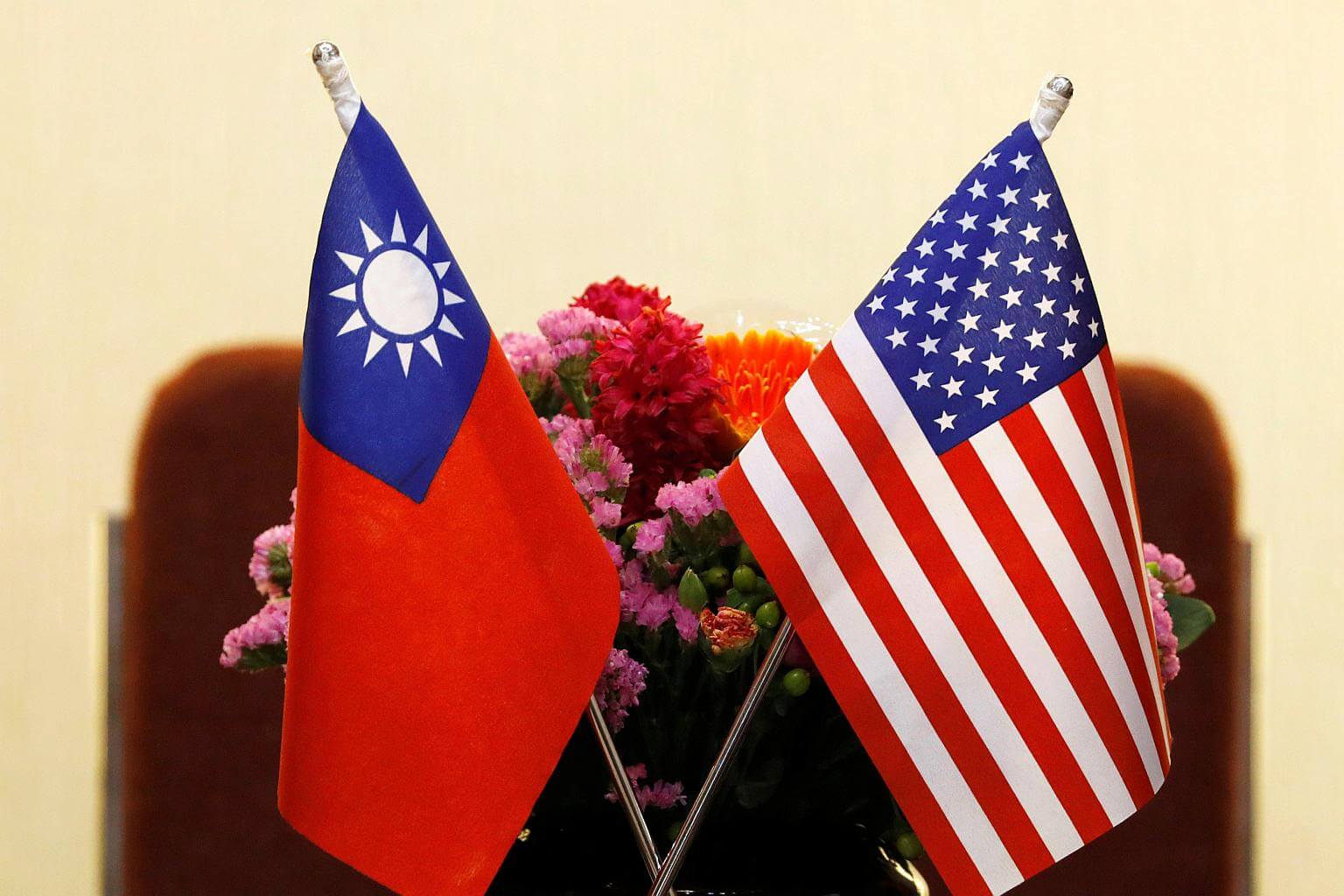US gives its ties with Taiwan a $334 million upgrade
Sign up now: Get insights on Asia's fast-moving developments

The American Institute in Taiwan will unveil a US$250 million (S$334 million) office complex, a visible boost to US ties with Taiwan.
PHOTO: REUTERS
Follow topic:
TAIPEI (NYTIMES) - On June 12, in a leafy, middle-class neighbourhood in Taiwan's capital, Taipei, the unofficial, Cold War-era relationship between this island and the United States is getting a major upgrade.
That is when the American Institute in Taiwan, the United States' embassy here in all but name, will hold a ceremony to formally unveil a US$250 million (S$334 million) office complex that resembles a university research centre, just with guarded gates and blast walls.
Built into a lush hillside, it will be a visible boost to US ties with Taiwan at a time when the number of official foreign diplomatic missions here continues to dwindle.
The sprawling new facility, which sits on a 16-acre site, will give far more visibility, and aesthetic appeal, to the understated US diplomatic presence here, which is currently spread across multiple offices in Taipei. Its main office is a small, drab 1950s-era former military building hidden behind 10-foot walls.
The institute, which is commonly known by its English acronym, AIT, is getting a face-lift at a moment when the relationship between Washington and Taipei - long kept low-key to avoid angering Beijing - has been elevated to levels not seen in decades.
That is due in part to the administration of President Donald Trump, who took a congratulatory phone call from Taiwan's president, Ms Tsai Ing-wen, after he was elected, and has since given prominent jobs to people known here as "friends of Taiwan", including Secretary of State Mike Pompeo and national security adviser John Bolton.
In March, Mr Trump signed the Taiwan Travel Act, which allows more high-level visits between Taiwan and the United States. There has been speculation here that Mr Bolton may come, which would make him one of the highest-ranking American officials to visit Taiwan since the United States withdrew diplomatic recognition in 1979.
Beijing, however, has also contributed to the changed mood with its more blatant efforts to pressure Taiwan, a self-governing democracy of 23 million people that China views as a breakaway province even though it has never been under communist rule.
China, which has vowed to use force if Taiwan ever declares independence, has sent bombers around Taiwan's main island and a new aircraft carrier, the Liaoning, through the 100-mile-wide strait separating Taiwan from mainland China.
In March, the Trump administration responded by approving the sale of submarine technology to bolster Taiwan's ability to defend its waters, outraging Beijing. Taiwan has stepped up efforts to make its case more forcefully in Washington, including a more active use of social media.
Taiwan is trying to build on its deep historical bonds with the United States. Those go back to 1949, when America's World War II ally Chiang Kai-shek fled to this island after his government's defeat by the communists under Chinese leader Mao Zedong.
During the Cold War, the United States stationed troops there to protect Taiwan, and recognised Chiang's Republic of China as the legitimate government of China for three decades.
When the US switched diplomatic recognition to the People's Republic of China to get its cooperation against the Soviet Union, Congress passed the Taiwan Relations Act promising to give Taiwan the means to defend itself.
While the US closed its official embassy, it has maintained an unofficial presence here via the institute, which is headquartered in Virginia, not Washington. Legally described as a nonprofit organisation, the institute is staffed by US diplomats who issue visas and perform most functions of a regular diplomatic mission.
The institute has about 450 diplomats and local staff, roughly just under half the size of the US Embassy in Beijing.
The roots of this new visibility of US-Taiwan ties reach into previous administrations. The lease on the institute's new site was signed during the administration of president George W. Bush, and most of the construction was done during the Obama administration.
While the June 12 ceremony may fall on the same day as a landmark summit meeting between Mr Trump and North Korean leader Kim Jong Un, it will be big news here.
President Tsai will attend, as will Taipei's mayor Ko Wen-je. The main focus of attention, however, has been on who will represent the United States, and how high-ranking that visitor will be.
During a May 21 news conference to announce the ceremony, the first question from the Taiwanese journalists who filled the room was whom Washington will send. The answer by the institute's director Kin Moy, an American diplomat who effectively serves as the US ambassador to Taiwan, only added to the anticipation.
"There will certainly be good friends of Taiwan coming from Washington," Mr Moy said. "You will recognise a number of these good friends."
A high-level visitor will be a symbolic lift for Taiwan, which has recently taken its diplomatic lumps. In the last month, Burkina Faso and the Dominican Republic both broke off relations, lured away by China.
The last high-profile American official to visit Taiwan was deputy secretary of state Warren Christopher, who came in 1978 to announce the end of official diplomatic ties. An outraged mob attacked Mr Christopher's limousine, pelting it with eggs, mud and rocks. He escaped with minor cuts.
Regardless of who shows up, Taiwan will seek to present itself as a reliable, democratic ally and an indispensable regional partner to the United States.
"The new compound reinforces the US-Taiwan relationship at an important time," said senior director Tiffany Ma at BowerGroupAsia, a Washington-based government affairs consultancy that has extensive dealings with Taiwan.
"As Taiwan faces increasing pressures from China's military coercion, influence campaigns, and efforts to undermine Taiwan's international space, the compound sends a crucial message that the United States remains very much vested in Taiwan," she said.

